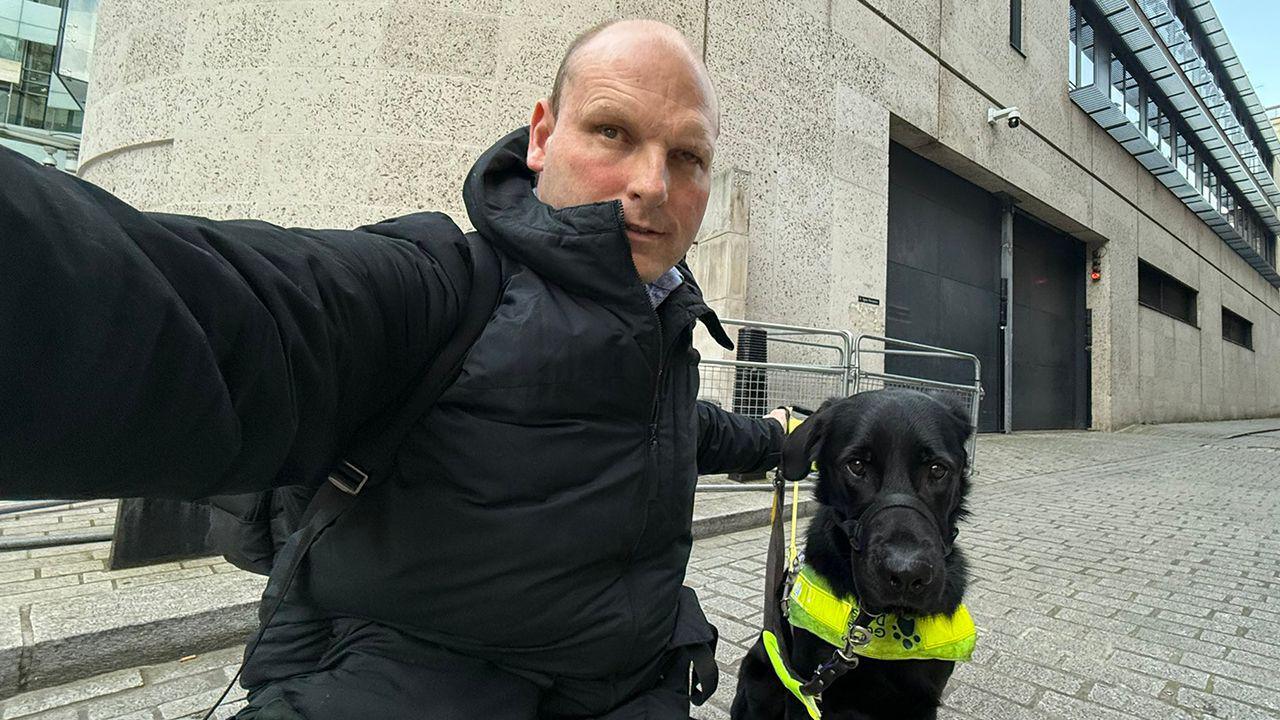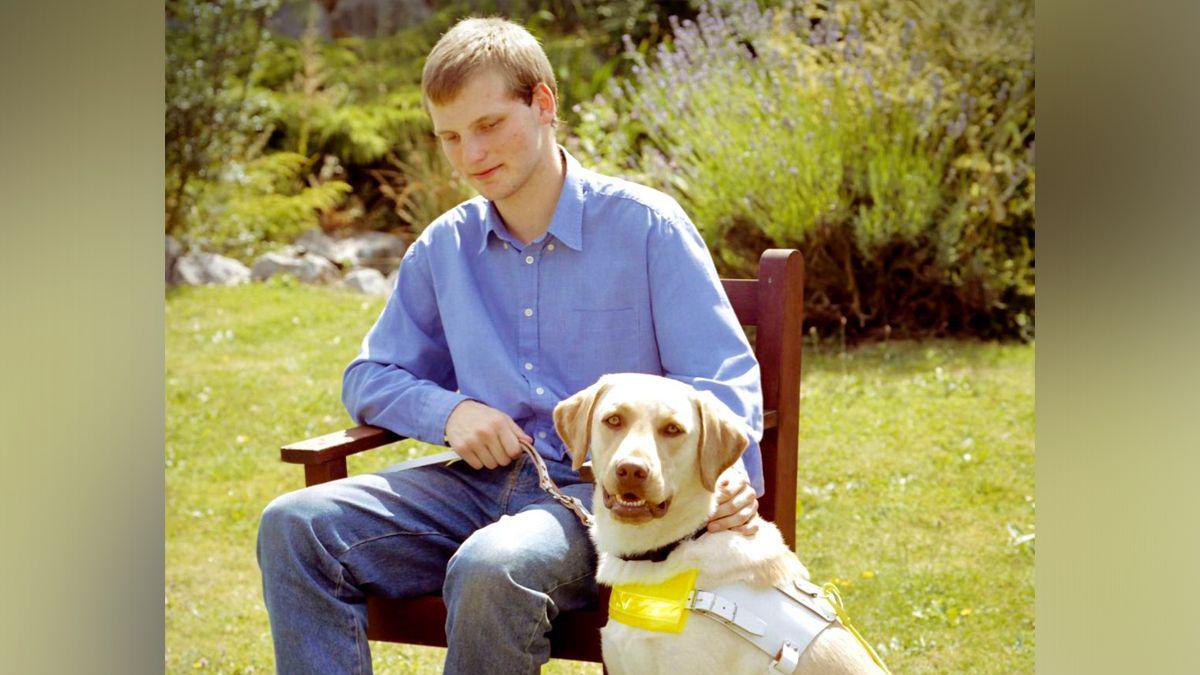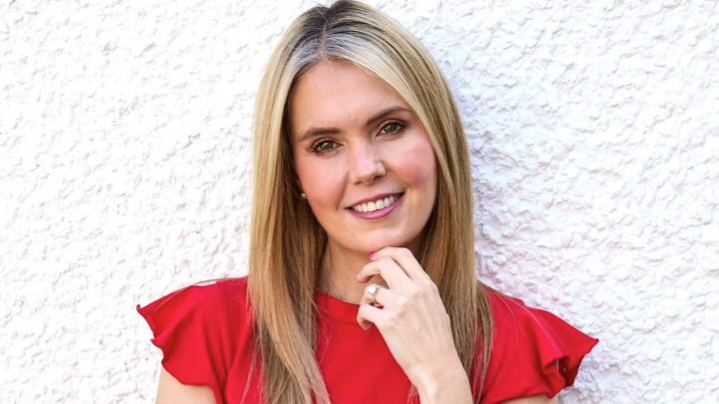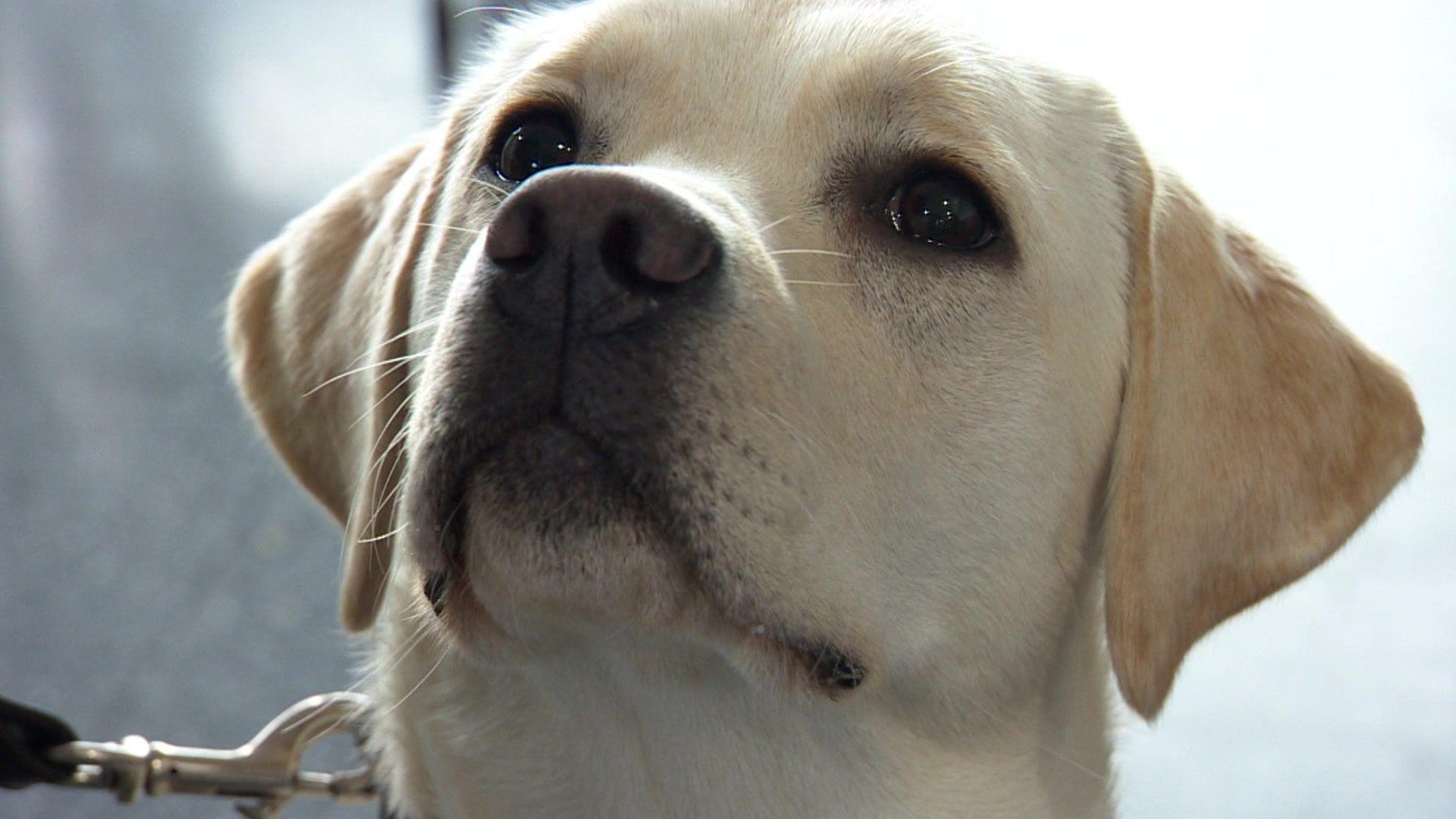'Refused service yet again with my guide dog - I'm done speaking out'

Sean Dilley says the last straw came after he and his guide dog Shawn were stopped from entering a restaurant last week
- Published
As a guide dog handler of 25 and a half years, I’ve had hundreds of experiences of being refused service - but online threats and increasing hostility towards disabled people mean I’m giving up on asking publicly for equality and respect.
The last straw came about a week ago. I was already reeling from a number of refusals by restaurants and shops when, once again, I was refused entry because I have a guide dog.
I visited the restaurant, which I have chosen not to name, but was told I couldn’t enter as people could have allergies. This, by the way, is unlawful.
They later changed their reason - saying they simply had no space.
It’s difficult to describe how this feels.
I don’t think you can understand it unless you know what it is like to face daily discrimination.
I compare the feeling to December 2022 when I was briefly robbed of my smartphone near the BBC building in central London.
Unlike street robberies, refusals are rarely violent or physical, but the feeling of being slugged in the gut is identical.
I argue refusals feel worse - because at least I can understand the motivation of robbers.
Chris McCausland: 'Perception of people with disabilities is antiquated'
- Published11 November 2024
Plea for guide dog fosterers to help 'change lives'
- Published25 September 2024
I have never understood why, when everyone on the planet is one accident or medical condition away from disability, many people seem to lack any empathy and do not attempt to understand how it must feel to be refused service because of a disability.
After failing to politely persuade the restaurateurs that my guide dog was well-behaved and then reiterating that it is unlawful to refuse access, one customer who'd overheard me voiced their disgust at the restaurant’s attitude.
I invited people who witnessed the refusal to leave a review. Two voices from another table, however, said that I had “ruined their meal” and “you should leave”.
I felt as small as a gnat.
My guide dog journey began in 1998, when I first applied to train with one. I had poor partial sight up until the year before when, as a 14-year-old, I became completely blind.
I have a number of eye conditions, but the primary diagnosis are glaucoma and hypertension, which have left me totally blind.
BBC's Sean Dilley learns to live with his new guide dog after long wait
Put simply, leaving my house is hard. Very fatiguingly hard.
I’ve been privileged to work with four wonderful guides - Brandy, Chipp, Sammy and now Shawn.
They’ve been my life, my freedom and independence.
That all feels ripped away from me when I’m refused service.
At the restaurant, more customers expressed their shock at the way I was treated. But for me, the customers who seemed annoyed sparked echoes in my mind of every occasion I’ve shared refusals to social media over the past eight years.
There I’ve faced constant demands to justify why I should want equal treatment and, more perturbingly, threats of violence and even death.
Two years ago, I was refused access to different branches of Tesco in London.
Tesco apologised and promised further training for staff.
Guide dog access refusal: Sean was told his dog wasn't allowed in Tesco twice in one week.
The encounters were captured on a privately owned body-camera. Many people were supportive but large numbers were highly abusive and aggressive.
I have received abuse on many social media platforms. Recently one user, who identified himself as a retired police officer, posted pictures of “victim cards” which, ironically, I was unable to appreciate until described to me by a sighted colleague.
His account was later suspended - but the post was not removed when I reported it.
Other users have asked why I'm sharing my experience of service rejection. I would reply to as many questions as possible and explain that it was simply to shine a torch into a dark corner.
On other occasions, social media users have threatened to punch me, kill my guide dog and tell me I need to “be careful”. One user said my mother should be raped.
Often the most vile abuse comes in the replies to lengthy threads, where discourse seems to get out of hand.
Why would I continue to put myself through this?

Sean Dilley, who had partial sight until he was 14, began using guide dogs in 1998 and has had four since then including Brandy
In England, Wales and Scotland, the Equality Act 2010 makes it unlawful to discriminate against a disabled person because they have a guide dog with them when accessing businesses or services.
In Northern Ireland, the same is true but the legislation is named the Disability Discrimination Act 1995.
There is a large anomaly in the law though. When taxis and cabs fail or refuse to carry an assistance dog, or attempt to charge more, it is a criminal offence.
When businesses and shops do the same, it’s a civil matter and it’s down to the individual disabled person to gather evidence and pursue them. It’s costly, energy-sapping and mostly not worth doing.
Raising the incidents on social media feels torturous when it means being threatened.
So I’ve had to accept there’s very little I can practically do.
Seeing is easy.
What seems harder for some, though, is trying to understand what it feels like to be barred from businesses when you can’t.
Get in touch
Have you been affected by the issues raised in this story?

Peter White is joined on Radio 4 by Pete Osborne, chief operations officer at the charity Guide Dogs, to answer questions from listeners. Many have been asking how the organisation operates in regards to waiting lists, training methods, and eligibility for new and replacement guides.
- Published11 November 2024

- Published10 November 2024

- Published6 November 2024
